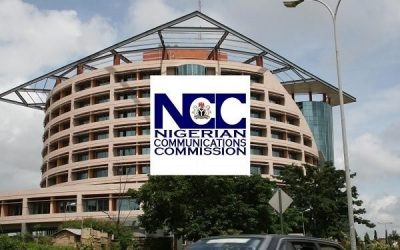Forensic Audit: MTN, Airtel top complaint list for data depletion
The forensic audit, which was conducted by the Compliance Monitoring and Enforcement Department (CMED) of the Commission, probed the four MNOs and discovered that a total of 106 data depletion complaints had been lodged by aggrieved subscribers.
Inundated by a deluge of complaints over data depletion rate in the telecoms industry, the Executive Vice Chairman and Chief Executive,NCC, Prof Garba Danbatta, in line with its mandate of consumer protection, had promised to conduct forensic audit into the complaints the way the Commission did on short message service (SMS) in which a particular operator was found to have defrauded its customers to the tune of N100 million.
According to the report, out of the 106 complaints received by the CMDE, 46 came from MTN subscribers while Airtel had 34. Glo had 19 while Emerging Markets Telecommunication Services Limited, doing business as 9mobile, had the least complaints of seven.
A source in the Commission said 10 reasons were identified for the fast depletion of subscribers’data. Prominent among these were the outbreak of COVID-19 pandemic and attendant lockdown to stem community spread of the virus; periodic application update on the smartphones; and conversion of mobile data to WiFi to share with other people.
Dambatta, in a response to enquiries, confirmed the conclusion of the audit and promised that a comprehensive report would be made public soon.
“We have made good progress on the forensic audit on data depletion,” Danbatta said.
On way forward to address data depletion, the report gave a number of recommendations, which included intensifying awareness campaign to educate subscribers on the need to switch off data when not in use; sensitising subscribers by the Consumer Affairs Bureau (CAB) of the NCC that the first point of complaint when aggrieved by poor service quality is their service providers; and urging one of the major operators to carry out checks to determine the number of its customers affected by data depletion incident.
“NCC has instituted a forensic audit on the cost of data, just like we did with cost of Short Message Service (SMS) on a particular mobile operator, where we discovered that the operator unlawfully surcharged its subscribers to the tune of over N100 million and we have asked the particular operator to make refunds immediately and the operator has commenced refund to the affected subscribers. This could have gone unnoticed, if not for the quick intervention of NCC. We have plans to even extend the forensic audit on SMS to other telecoms operators.
“So, like we did for SMS, we are doing same for data to find out the reason for fast data depletion and it will be carried out across all Mobile Network Operators (MNOs). By the time the audit is completed and the result is out, perhaps we will have better information of what is happening in the data segment, as it relates to fast data depletion,” Dambatta said.
He said the Commission did its benchmarking recently and discovered that the cost of one Gigabyte of data had come down below N500, which represents 50 per cent reduction from what it used to be. NASD Security Index
He said there was, however, a target to reduce data cost to N390/Gigabyte by 2025, adding that Commission was almost there.
“The target, as enshrined in the National Broadband Plan (2020-2025) is to achieve N390/Gigabyte in the cost of data by the end of 2025, but the recent benchmarking that the NCC did, showed that the cost of data has reduced to more than 50 per cent from what it used to be at the beginning of 2020. For us, as industry regulator, this is a good sign that data cost is coming down and that the issue of data depletion as experienced by subscribers, is gradually been addressed.
“Although the reduction in the cost of data may not completely address the issue of fast data depletion as currently being experienced by subscribers, but that NCC is considering a new measure that will completely address the issue of data depletion,” Dambatta said.


